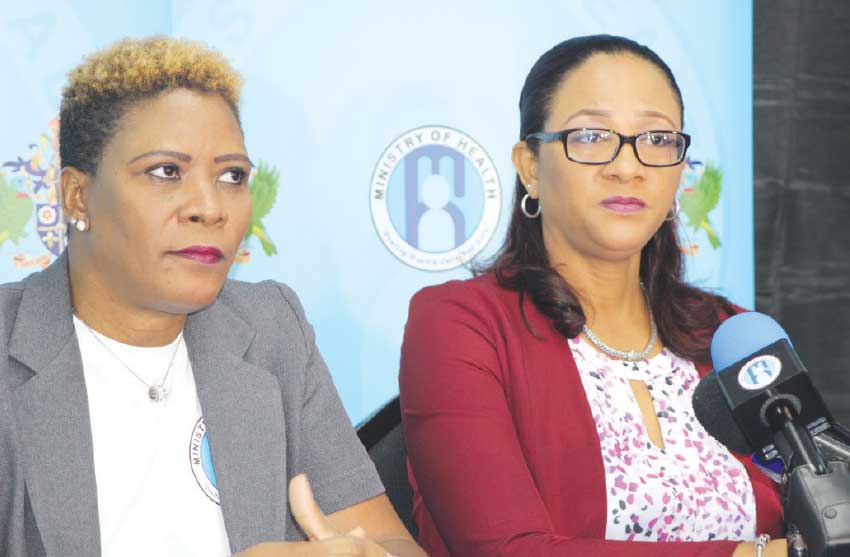Pushing the line that no one is too young or too old to be vaccinated, the Ministry of Health and Wellness is now embarking on a vaccination programme geared at immunising as many Saint Lucians as possible, both the old and the young, even babies.
The Ministry of Health orchestrates Vaccination Week every year around this time. It is an opportunity for the Ministry to step up its vaccination programme to reduce and prevent diseases among children and adults. This year, Vaccination Week started on April 20th and ends on April 27th.

“Every year we observe Vaccination Week to be able to promote vaccination and to bring awareness to persons on the importance of vaccination not just for children but for adults. We really want to promote vaccination throughout the life course, so no one is too young or too old to be vaccinated,” said Julietta Cassius-Frederick, Assistant Principal Nursing Officer/Immunization Manager.
However, this year things have changed a bit for the Ministry in that more vaccines have been introduced in the country to protect the population from diseases.
“We continue to do improvements with our vaccinations in Saint Lucia to our various population groups. Last year we introduced the Hepatitis birth dose, so an infant who is born will receive the Hepatitis B vaccine. This is an improvement that we have done in our schedule to be able to protect against transmission of the virus from the mother to the baby. In January, we also introduced the human papillomavirus vaccine to all of our girls and boys 11 to 12 years in Grade Six,” Cassius-Frederick said.
“Also this year, we had an increase in the influenza vaccine to our high-risk groups,” she added. “We continue to promote vaccination as a public good because it helps to prevent outbreaks in populations. Over the years we have a done a lot of work with the primary schools ensuring that every child is fully vaccinated. We want to engage day care centres, pre-schools, parents, and community workers. We want to engage, teach them and bring more awareness at the district levels so persons would understand the importance of vaccination not just in protecting children but protecting the entire community,” Cassius-Frederick added.
Medical Officer, Dr. Sharon Belmar-George said vaccination remains one of the most efficient and cost-effective public health strategies that have been used to reduce and prevent diseases.
Saint Lucia procures its vaccines through the Pan American Health Organization’s revolving fund and according to Belmar-George, “We ensure that the vaccines we bring in through these funds are very effective and very safe. We also monitor our children who receive those vaccines.”
The vaccines are distributed throughout the 33 wellness centres under the control of the Ministry of Health, community hospitals and polyclinics free of charge.
“We are committed to ensuring the availability of these vaccines to reduce the burden of vaccine-preventable diseases on the population. We will continue to provide these vaccines and we are committed to ensuring that they are available to protect our children and our population,” Belmar-George said.
She noted that vaccines not only prevent diseases but reduces morbidity and mortality in terms of the number of persons in a community getting certain diseases.
“Which means a reduction in terms of hospitalisation and hospital stays, in terms of the cost of the medication, treatment, and care some of those patients would need,” Belmar-George said.
“We saw great reductions in a lot of these diseases with the implementation of vaccination in 1977 here in Saint Lucia. Immunization is extremely important for the reduction of certain types of cancers as we saw with the introduction of hepatitis B vaccine and the reduction of cancer of the liver,” she added.







![Attendees at the UHC logo and website launch [Photo credit: GOSL]](https://thevoiceslu.com/wp-content/uploads/2026/02/Attendees-at-the-UHC-logo-and-website-launch-380x250.jpg)






![Remnants of an alleged drug boat blown up in a lethal strike by the U.S. military last week surfaced off Canouan on Saturday [Photo credit : St Vincent Times]](https://thevoiceslu.com/wp-content/uploads/2026/02/Remnants-of-an-alleged-drug-boat-blown-up-380x250.jpg)
